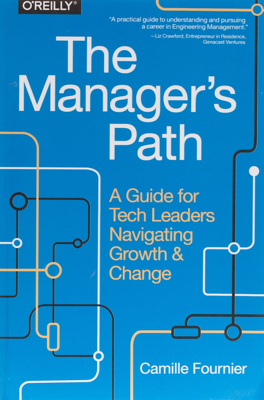Managing People
Starting Off as a New Manager
Becoming a new manager involves transitioning from a technical role to managing people, making it essential to adjust to an entry-level perspective despite previous seniority in technical tasks.
Establishing a New Reporting Relationship
Building Trust and Rapport: Begin by understanding direct reports' preferences, such as their preferred means of receiving praise and serious feedback or their career goals. This aids in customizing management approaches for effective communication and support.
Creating a 30/60/90-Day Plan: This structured approach helps set clear goals for new hires and assess their progress, facilitating both the manager's and the direct report's understanding of expectations and milestones.
Encouraging Participation: New hires should be encouraged to update and improve onboarding documentation as they learn. This not only helps them integrate but also enhances the overall onboarding process for future new hires.
Communicate Your Style and Expectations: Clearly delineate what is expected in terms of communication, feedback, meeting schedules, and task handling to avoid miscommunications and set a clear working relationship from the start.
Communicating with Your Team
Regular 1-1s: Effective managers engage in regular one-on-one meetings, adjusting the frequency based on need, individual circumstances, and the dynamics of the team.
- Adjusting 1-1s: Consider the individual's need for guidance, their communication style, and team dynamics to tailor the frequency and style of 1-1 meetings.
Managing Your Team's Work
Engage actively in project discussions, goal setting, and progress assessments to ensure that team members are clear on objectives and receive necessary support.
Dealing with Underperformance
Handling underperformance starts with identifying it early and providing clear, regular feedback, intended to guide improvements rather than solely criticize.
Performance Improvement Plans
Use performance improvement plans (PIPs) to specify expected improvements when team members do not meet performance standards, ensuring that the goals set are realistic and achievable within a given timeframe.
Providing Continuous Feedback and Coaching
Establish a practice of giving both positive and constructive feedback routinely, not just during formal review cycles. This should be framed around understanding each team member's responsibilities, strengths, and areas for growth.
Encourage and cultivate a habit of continuous improvement and regular communication about performance and goals. This helps in making formal reviews a summary of known feedback rather than a source of surprises.
Handling Promotions and Career Development
Understand and participate actively in the organizational processes for handling promotions. Aim to objectively assess when team members are ready for promotion based on their contributions, development, and readiness to take on greater responsibilities.
Promote a clear understanding among team members of what is required for advancement and provide opportunities for them to meet these criteria.
Conclusion
Effective management is characterized by proactive communication, regular feedback, and clear expectations. Building a strong foundation in these areas is fundamental to successfully managing teams and guiding team members towards professional growth and development.
